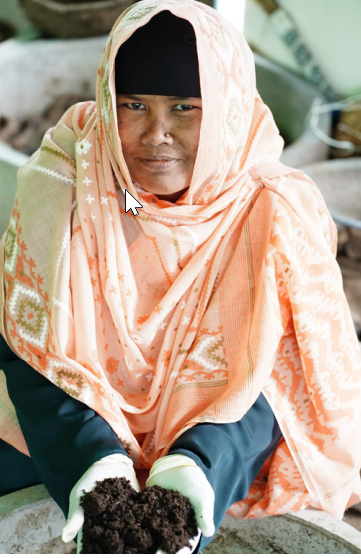Ayesha Siddiqa’s life has been shaped by substantial trauma. Ayesha’s parents arranged her marriage at a young age, and from the beginning, she endured mental and physical abuse at the hands of her husband. The abuse escalated after the birth of their daughter. As her situation became more dire, Ayesha reached out for help from her father to attain a formal divorce — something she could not do by herself due to Bangladeshi law. Once separated from her husband, Ayesha struggled as a single mother to meet her daughter’s basic needs. Without an education, she was limited to work at someone else’s land or home.
Ayesha discovered her path out of poverty when she joined the Amra Shadhin Cooperative Society. The co-op taught her how to grow vegetables, rear livestock and build a business so she could make her own money. She received funds to purchase seeds, as well as chickens and materials to raise a flock. After a few months, she purchased a goat and a cow. Through these investments in herself and her farm, she quickly increased her income. Her partnership with the co-op transformed her life. She has expanded her business well beyond rearing goats, cows, and poultry. She is passing on the gifts she received from the co-op by teaching classes to other women and sharing her best practices for business and farm production. However, her most profitable business comes from selling worm castings. Worm castings are the product of vermiculture, the use of worms and other organisms to break down waste and create compost with nutrients for agricultural use. Her co-op provided her with training to start a small vermicompost plant at her home.
Ayesha has a reputation in her village for welcoming anyone who wants to learn more and sharing her skills and knowledge. “I don’t want to succeed alone, I want to succeed with everyone so that no one suffers like I have had to suffer in the past,” Ayesha said. She is breaking the generational cycle of abuse.

